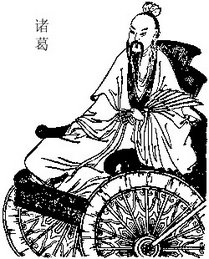China Trips: Northwest (11)
Another place I had to pay cash was the airplane ticket. Well, that was the same almost anywhere in China. But one big difference in Yulin versus other bigger cities was this: Say if I was traveling between Xi'an and Yulin by air, in Xi'an I bought the ticket from Xi'an to Yulin, but I couldn't buy the return ticket! I had to buy the air ticket from Yulin to Xi'an in Yulin. That was due to of course a very underdeveloped computer system.
So typically the very first thing after I arrived in Yulin was to buy the airplane ticket back to Xi'an. Usually the flight was not fully booked yet if I took such an initiative. And if you ever saw the airplane they used between Xi'an and Yulin, you understood why I had to move fast. It couldn't hold many people. 48 assigned seats, to be exact.
See, Yulin was so small - rather, so underdeveloped - that there was not even a train station in Yulin. Oweing to the fact that it was historically a military base, it did have a military airport. The airport didn't have a runway of much length, so jets couldn't fly here. Instead, the aircraft they used was a propeller driven model, named Y-7.
I have a good friend who lives in Cleveland, and he used to travel in China as much if not more than I did during those years. He told me that he flew Y-7 once, and that was "enough" for him. He wanted no more Y-7 flights. I understood that sentiment fully. You see, a Y-7 couldn't fly very high, and it couldn't escape the high winds in the sky. If you were in a jet on a long trip, occasionally the aircraft ran into air turbulence. That was when the flight captain warned everyone to buckle up their seat belts. On a Y-7, occasionally you did not have air turbulence.
In fact, many people threw up toward the end of the flight. I have to confess that I was lucky in the sense that I didn't know that people were throwing up in my first dozen or so such flights. Only the last couple of flights, I actually saw people puking into the paper bags. That sight stirred me; had I had such a knowledge from the very beginning, I could very well end up being one of them.
The word in Chinese for air-sick is "Yun Ji" ("Yun" means dizziness, and "Ji" means airplane), and the word in Chinese for Y-7 is "Yun Qi" ("Yun" means transportation, and "Qi" is the number 7). What do you know, the two words sound awfully close in Chinese.
But that was what I needed to go through to go to Yulin. Other than the first trip when I took that unforgettable ride from Yinchuan to Yulin, all the other times I flew between Yulin and Xi'an on a Y-7. Also a couple of other times between Xi'an and Yinchuan, I took Y-7 as well. In all, I took Y-7 a total of 14 times.
If there was anything that I ever bragged about my China trips, it was this: I took Y-7 a total of 14 times.
